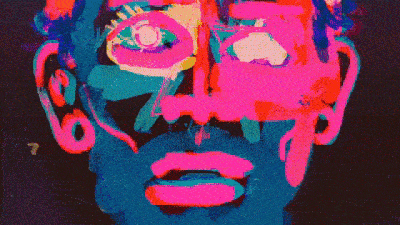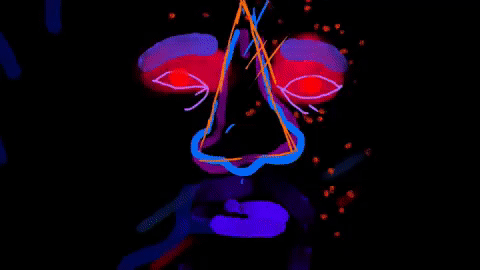

Sleep is a paradox. Or at least, it kind of seems that way when examined from an evolutionary standpoint.
When we’re asleep, we have diminished awareness of our surroundings, leaving us vulnerable to predators and other threats in the environment.
And from a practical perspective, lying down with your eyes closed for eight hours also seems like a fairly unproductive behavior, which no doubt is why high-achieving people throughout history have sought to get by with less of it.
Despite these obvious disadvantages, we spend about a third of our life in slumber. And not just us – some form of sleep is nearly ubiquitous in the animal kingdom. Finally, as everyone knows all too well, disturbances to sleep can have a serious negative impact on our physical and mental health, making it hard to minimize even if you really want to.
The universality of sleep, as well as our inexorable need for it, in the face of its costs, suggests that sleep is extremely important. But for what specific biological reason do we need to sleep? Surprisingly, a core function remains elusive. But some elegant new studies seem to be pulling us ever closer to finding an answer.
A PURPOSE FOR SLEEP
One thing we do know is that the processes of sleep facilitate restoration and repair in the body. For example, endogenous antioxidant systems are more efficient while we are asleep, helping to maintain redox homeostasis across a 24-hour period and shielding the nervous system from oxidative damage.
In her research, Mimi Shirazu-Hiza found that fruit flies that got more sleep were more resistant to oxidative stress, while flies that were genetically predisposed to sleep less were more vulnerable to oxidative challenges (check out the interview to learn more about that!). Interestingly flies that expressed high levels of antioxidant genes showed lower reactive oxygen species and a reduced need for sleep. This suggests a bidirectional relationship between oxidative signals and sleep and wakefulness.
It has also been suggested that sleep may play a role in DNA repair. For example, a study from earlier this year found that on-call doctors who were required to work overnight showed a decrease in DNA repair gene expression, compared to doctors who did not work overnight. And it didn’t take long for the biological toll to become evident – just a single night of sleep deprivation resulted in greater DNA damage, in the form of double-stranded DNA breaks.
Similarly, Judith Carroll and colleagues found that just one night of partial sleep deprivation increased markers of DNA damage. This, in turn, led to an increase in markers of senescence, and an activation of gene expression patterns associated with biological aging.
Taken together, it seems clear that sleep and DNA repair are tightly connected. And that brings me to our guest for this episode.
GUEST

Image Credit: FishForPharma
In this episode of humanOS Radio, Dan speaks with Lior Appelbaum. Dr. Appelbaum is an associate professor of Life Sciences at Bar-Ilan University in Israel. His lab is working to unveil the molecular and cellular mechanisms that underlie sleep, psychiatric disorders, and various physiological phenomena – using zebrafish as a model organism.
You’ve probably seen zebrafish before – they’re very common in freshwater aquariums. They might seem like a rather unlikely model for understanding sleep or brain circuitry. However, they’re a lot more like us than you might imagine. The zebrafish exhibits most of the hallmarks of sleep that we see in mammals like ourselves, as well as chemical regulators of the sleep/wake cycle like melatonin and orexin.
But what has rendered these animals especially suitable for studies like this is the development of transparent zebrafish. The absence of pigment in these mutants enables researchers to literally look inside the fish’s head, measuring neural activity in real time while the critters are alive (something that is obviously pretty hard to achieve with human subjects!).
STUDY
Let’s take a quick look at what they did here and what they found. Lior and his team genetically engineered zebrafish larvae to express fluorescent chemical tags on the chromosomes within their neurons, making it easier to identify and monitor them. Then, using a high-resolution microscope, they followed the activity of these chromosomes while the zebrafish were awake and asleep.
While the animals were awake, the chromosomes didn’t move around a whole lot. But when the zebrafish went to sleep, these chromosomes significantly ramped up activity. Time-lapse imaging revealed that chromosome dynamics increased by about two-fold during nighttime sleep.
At first, this might seem a little counterintuitive – why would chromosomes in neurons become more active at night, ostensibly when the body and mind are resting?
The reason, of course, is that sleep is a period of restoration. 
While the zebrafish were awake, the neurons gradually accumulated DNA damage. No surprise there – we already know that neuronal activity induces double-stranded breaks in mammals. But when the animals slept, the neurons were able to get busy repairing and clearing this damage. In other words, the reason why we need sleep is to perform nuclear maintenance, to recover from the toll of being awake.
Lior and his team further unveiled this relationship through a series of experiments in which they manipulated the sleep of the zebrafish. For instance, keeping the animals awake by tapping on the tank caused greater accumulation of DNA damage. And the researchers were able to enhance repair processes by infusing melatonin into the water.
These findings could shed meaningful light on that huge and still-unanswered question – what is the purpose of sleep? It may also explain why sleep disturbances play such a profound role in brain performance and disorders of the brain, and would certainly explain why prolonged sleep deprivation is a lethal endeavor. To learn more about sleep and DNA repair, and the specific findings of this study, please check out the interview below!
LISTEN HERE
On Soundcloud, iTunes, Google Play, Stitcher, and YouTube
YOUTUBE
SUPPORT
Have you considered becoming a Pro member of humanOS.me? It costs just $9.99 per month, and when you go Pro, you get access to all our courses, tools, recipes, and workouts. Pro members also support our work on blogs and podcasts, so thanks!
LEAVE A REVIEW
If you think other people would benefit from listening to this show, you can help us spread the word by leaving a review at iTunes. Positive reviews really help raise the profile of our show!
TRANSCRIPT
| Dan Pardi: | 00:00 | Why do we sleep? Part of what makes sleep so fascinating as a field of research is, big important questions like this remain somewhat of a mystery. From an evolutionary perspective, sleep is not without its consequences. It diminishes our awareness of the environment, leaving us vulnerable to predators and to other threats. We can’t procreate while we’re sleeping, and we can’t find food or build shelters during this period either. Yet we spend nearly a third of our lives doing it. It’s a lot of time. |
| Dan Pardi: | We know that disturbances to our sleep have serious, deleterious impact on both our health and functioning, both physical and mental. In fact, prolonged sleep deprivation ultimately results in death. All of this together suggests that sleep is very important, but an essential function for sleep remains somewhat elusive. | |
| Dan Pardi: | 00:27 | We do know that the processes of sleep facilitate restoration and repair of the body. For example, endogenous antioxidant systems are more efficient while we’re asleep, helping to maintain redox homeostasis across a 24 hour period, and protects the nervous system from oxidative damage. |
| Dan Pardi: | In my discussion with professor Mimi-Shirasu Hiza, she described her work in fruit flies that got more sleep had greater resistance to oxidative stress, while flies that’s slept less are more vulnerable to oxidative challenge. Interestingly, flies that express high levels of antioxidant genes show both lower reactive oxygen species and also reduce need for sleep. This suggests a bi-directional relationship between oxidative signals and sleep and wakefulness. | |
| Dan Pardi: | 00:46 | It’s also been suggested that sleep may be involved in DNA repair. For example, a study out of Hong Kong this year found that on-call doctors who were required to work overnight showed a decrease in DNA repair gene expression compared to doctors who did not work overnight. Just a single night of sleep deprivation resulted in greater DNA damage in the form of double stranded DNA breaks. |
| Dan Pardi: | Similarly, Judith Carroll out of UCLA, showed that only one night of sleep deprivation increased markers of DNA damage and correspondingly increased markers of senescence. It seems that there is a connection between sleep and DNA repair. So when I saw this study by associate professor Lior Appelbaum from Elon University in Israel with new evidence on this subject, I was keen to get them on the show. So I’m delighted that he is here with me today. Lior, welcome to humanOS Radio. | |
| Lior Appelbaum: | 01:01 | Thank you for the invitation. |
| Dan Pardi: | Well, let’s start broadly here. Do all animals sleep? | |
| Lior Appelbaum: | 01:28 | Until today all animals that tested showed sleep behavior. Based on behavior with [inaudible 00:02:24], it is suggested that all animal with nervous system do sleep. It’s all about that definition of sleep. How do you define sleep? |
| Dan Pardi: | With animals, you define it by behavioral criteria and in humans also and some mammals and birds, we know that we can detect their EEG patterns. But you guys were looking at another animal model, the zebrafish. So how do you define sleep in that animal model? | |
| Lior Appelbaum: | 01:47 | So in mammals and birds and a little bit in lizard too, you can define their sleep by two criteria. One is behavioral criteria and the other is EEG activity. However, in a less developed vertebrate like a fish, and of course in invertebrate, sleep is defined solely by behavioral criteria. Thanks to this creature, we can define sleep even in jellyfish. |
| Lior Appelbaum: | For example, like two or three years ago a group from California defined sleep even in jellyfish, so all animals sleep. Also in zebrafish, we define sleep in the last two decades almost now, we defined sleep by behavior, meanings that zebrafish for example, are diurnal animals so they will sleep more or be less active during the night. They will respond to homeostatic pressure to sleep deprivation and will demonstrate sleep rebound in the following day if you sleep-deprive them during the night. | |
| Lior Appelbaum: | 02:13 | They will show increase [inaudible 00:03:40] threshold during sleep and of course circadian control, specific posture, typically they sleep on the bottom of the tank or on the top of the tank. All those criteria show that indeed like all other animals, fish also sleep. |
| Dan Pardi: | Besides from being able to observe those behavioral characteristics, are there other reasons why zebrafish make for a useful organism for studying the brain or and the process? | |
| Lior Appelbaum: | 02:15 | Yeah. So since now it’s the [inaudible 00:04:06], zebrafish in general became a very, very popular model to study neuronal circuits development or developmental disease because of several reasons. One, it’s very easy to maintain them and grow them. They are small so we can put many of them in a small room and they are very resilient. They survive different temperature and different pH, et cetera. |
| Lior Appelbaum: | Second is amenable for genetic manipulation like drosphila or C. elegans or other invertebrates. It’s relatively easy to prepare transgenic fish to put green fluorescent proteins or to do the opposite, to do mutants. So using the CRISPR and other system, it’s relatively easy to establish a mutant fish. | |
| Lior Appelbaum: | 02:18 | Then the main advantage, and this is why they were chosen also to these studies is that they’re transparent, and it’s very unique for a vertebrate to be transparent. If we want to study the brain in mammals, it’s relatively difficult because the brain is hidden within the opaque cranium and you need to either kill the animal, or open small windows or image a very superficial region of the brain. In fish the whole brain is transparent. So basically you can image the activity of the entire brain in a single cell resolution in a transparent live animal. |
| Dan Pardi: | Fascinating. So tell us more about this study. What were you looking at and how did you conduct the study? | |
| Lior Appelbaum: | 02:32 | Two question initiate this study. First is why do we sleep? Second, can we find the marker to define sleep in addition to behavior [inaudible 00:05:44]. As we know, there is many, many functions for sleep. I would like just to highlight the memory consolidations, synaptic plasticity, and of course the cellular reason that you raise different macromolecule, synthesis, metabolite clearance, et cetera. |
| Lior Appelbaum: | We saw that sleep is fundamental to the single neuron. If we think about jellyfish or a C. elegans worm that sleep, and they all have nervous system, so we thought maybe a single neuron requires sleep or maybe a single neurone sleep. Then you need to find another definition to what we call sleep. Because when we say EEG, we obviously think about the network and the entire brain. When we think about the cellular function of sleep, we can look at the single cell and see whether its behavior, or its properties are changing during sleep and wake. | |
| Lior Appelbaum: | 02:46 | For this to do cell biology experiment in live animals, zebrafish is a perfect model because it’s transparent and you can manipulate genes relatively easily and you can do all those cell biology experiments inside the brain of alive animals during the day and during the night during sleep and doing wakefulness. Several groups shows that transcriptome, for example, change a lot during sleep and wake. Cell and nuclear processes change between sleep and wake in heterochromatin or DNA found on the basic of all those changes. So this is why we decide to try to visualize the dynamics of a chromosome or chromatin inside a single cell and to see whether those dynamics that reflects transcription, repair and many other processes of the cell, whether those dynamics change between sleep and wake. |
| Dan Pardi: | You were interested to evaluate chromosome dynamics, the changes in chromatin and transcriptome in the nucleus over a 24-hour period, but particularly during sleep. What’s the relationship between chromosome dynamics and for instance, DNA repair? | |
| Lior Appelbaum: | 03:08 | Before I jump to repair I just want to say what we found. So initially we just studied the dynamics and compared day versus night sleep versus wake. What we find that sleep increase, not reduce, increase chromosome dynamic, which was kind of surprising because if you think about sleep in a single cell, you think about that everything may be going down, reduced during the night when the fish go to sleep. Actually what we found is gain of function, we found that chromosome dynamics increased during sleep. |
| Lior Appelbaum: | It happened not only when we compared the day versus night, it can happen also with pharmacology experiments. For example, if you put the fish to sleep using melatonin, which is a strong sleep-promoting hormone in fish. So even during the day, if you treat it with melatonins, chromosome dynamics increase during the day. So with this and other experiment we call it the increase of chromosome dynamics with sleep. We did it in different neurons, in different region inside the live fish. | |
| Lior Appelbaum: | 03:39 | Then like you said, the next question was, okay, so chromosome dynamic increase during sleep. Why? How does it help a single neuron and eventually the entire fish? What’s the beneficial role of this increased chromosome dynamics. This is where we enter the field of double-strand where you got called DNA damage and several groups, like you said, they showed it already the double-strand break is in reduce during the night. We studied this also in fish and what we found that during the day when the fish is awake, the DNA damage is increased. It’s increased and increased and if you sleep deprive the fish, it’s even more increased. So as long as the fish is awake, their DNA damage is accumulated. |
| Lior Appelbaum: | You mentioned the doctors’ experiment and when they sleep-deprive them for the whole night, DNA damage is increased in the fish. However, once the fish go to sleep, DNA damage is reduced until it reach a baseline level and you can start your next day with the same amount more or less like the previous morning. So you basically normalize the amount of double-strand break. | |
| Lior Appelbaum: | 03:55 | This is the opposite than chromosome dynamics because during the night, chromosome dynamic increase and during the night and double-strand break is reduced. If we think about correlation, this suggests that for some reason, increased chromosome dynamics enable more efficient repair. So in this paper, we also did a causal experiment and we manipulate chromosome dynamics to see what will be the effect on double-strand break. |
| Lior Appelbaum: | Indeed, when we inhibited chromosome dynamic, meaning when we didn’t let the chromosome move in a single cell, not in the entire fish. We choose a few cells and when with genetics we could inhibit chromosome dynamics in a few cells in a few region, and then we compare it to cells that were free of this over-expression. So to cell that they can increase chromosome dynamics during the night, we found that in those cells that cannot increase the chromosome dynamics, double-strand break is accumulated even during the night, even when the fish go to sleep. Sleep is essential to increase chromosome dynamics, which eventually enables the efficient repair during the night, during sleep. | |
| Dan Pardi: | 04:05 | When I was reading the paper, it got me thinking of modern society and how a lot of people will get less sleep during the week and try to catch up on the weekend. While that might make you feel a little bit better, it’s not that you shouldn’t try to get more sleep when you’re deficient, your work lends itself to the idea that this is not a perfect way to get sleep in our world. Instead of getting damaged during the day and repairing at night, you’re accumulating damage for five days in a row. I know that your study didn’t look on that specifically, but you could imagine that you are accelerating DNA damage with that relationship with sleep, sleep loss during the week, sleep catchup on the weekends. |
| Lior Appelbaum: | Yeah. Maybe about this, we study everything in fish. So of course we think that sleep is very conserved especially in vertebrates and we think that our finding in fish reflect a similar finding in a human and based on research with the physician. What we suggest is indeed was similar to what you said. You accumulate damage and at some point this damage in specific cells can cause permanent damage, but at least in our experiment we saw that sleep can always recover this damage. Whether or not chronic sleep deprivation will eventually lead to a problem and disorders, this still need to study the whole sleep [inaudible 00:00:12:17]. | |
| Lior Appelbaum: | 04:30 | We know that sleep is beneficial to the brain. If you don’t sleep, your performance is reduced, your memory consolidation is reduced then you perform less good in the test or whatever, but we just suggest a mechanism. We suggest that this is maybe happen because you accumulate DNA damage in specific neurons. |
| Dan Pardi: | I’d love to see a prospective study that aimed to evaluate DNA damage over time in humans. Of course, we know that people that sleep less that do shift work have really drastically increased rates of cancer and diabetes and heart disease. So we see that matching up and this is a potential mechanism here. So I know that’s speculative, but it makes sense to me. | |
| Lior Appelbaum: | 04:51 | I would look at neurodegenerative disease more than cancer because we look of course on neurons and that they’re not divided and as cells. So what we think that if you accumulate DNA damage in those neuron eventually it will lead to apoptosis rather than cancer or whatever. Of course we know that neurodegenerative disease also associated with sleep disturbance. Maybe this is one of the mechanisms. |
| Dan Pardi: | Is this phenomenon specific to neurons or does it occur in other cells throughout the body? Have you been able to visualize this fluctuation in chromosome dynamics in other cell types so far? | |
| Lior Appelbaum: | 05:27 | This is a very important question. To answer this question, you need to visualize chromosome dynamics in all other cell type. We for now try it only in two other cell type. We try endothelial cell of the vascular system and we also try in Schwann cells, in the glial cell basically. In both cell type, we didn’t find any differences in chromosome dynamics or in double-strand break between day and night. They both have dynamics, but it doesn’t seem that there is any differences between day and night or between sleep and wake. So this suggests that maybe this phenomena is specific to neuron, but of course we need to test other cell types, especially cells that are active, muscle cells or cell in the heart and to see whether or not chromosome dynamics change between day and night. But for now, what we suggested is that this is specific to the excitable neurons. |
| Dan Pardi: | Could this be contributing factor in homeostatic sleep drive? Neurons accumulate DNA damage during wakefulness and consequently you start to feel sleepy because the brain needs the time and energy afforded by sleep to perform that DNA repair. Do you think that that process is contributing somewhat to the feeling of sleepiness that an organism has over time? | |
| Lior Appelbaum: | 05:34 | Yes. So we think this is one of the homeostatic signals. So for example, in this paper we did an experiment where we doing the day when the fish are awake already, we induced double-strand break with [etoposide 00:14:53], which is a chemical that is well known to induce robust double strand break. Indeed in the fish, it’s also induced double strand break, but it did not affect either chromosome dynamics or sleep because if they were treated with a chemical they would stay awake and chromosome dynamic was low as it always doing wakefulness. |
| Lior Appelbaum: | However, when we let the fish recover from the drug one hour and two hour after it the recovery, the fish increased their sleep by two-fold, even more. This increase in sleep was followed by increase in chromosome dynamics and later reduction of the amount of double strand break back to normal level. So indeed we think that you can induce, you become more tired, but let’s say if you gain if you accumulate double strand break. | |
| Dan Pardi: | 06:00 | Were there any specific markers of the double stranded DNA breaks that might be the signal mediating the effect of DNA breaks into the homeostat? |
| Lior Appelbaum: | We don’t know the molecule or the markers that signal the brain that you accumulate damage. I can just speculate about all those repair proteins that are wellknown, all those repair systems that somehow signal outside the cell that we have a lot of DNA damage. The false neuronal activity itself maybe, but no. For now we don’t know what is the signal. Future walk that we walk on and try to find those molecules. | |
| Dan Pardi: | 06:35 | Speaking of which you’ve had this finding that’s garnered a lot of attention, what’s your next steps in terms of taking what you know now and trying to advance the knowledge? What are your next experiments going to look like? |
| Lior Appelbaum: | There is many. One of them we just said to try to understand how the brain know that a specific region is, in this specific neurons they accumulate the DNA damage that requires sleep? Where in the brain is the regions that are important for this accumulation of DNA damage? Another question is what’s the difference between wake-active versus sleep-active neurons, because as we all know very well, the brain is very active also during sleep. So maybe the phenomenon will be very different between sleep active-versus wake-active neurons. | |
| Lior Appelbaum: | 07:30 | One more thing is that we very important also that we plan to study in the future is of course other organism. What we found is in zebrafish, but is it true also in jellyfish? Is it true also in mice? Is it true also drosophila? To try to understand if those changes in chromosome dynamics and the differences in repair is also true for other organism as we currently suggest but never tested. |
| Dan Pardi: | Last question for you. Was melatonin necessary in this process? Was that the signal that allowed for the change in nuclear maintenance chromosomal dynamics to occur? | |
| Lior Appelbaum: | 07:45 | The two experiments that we did, we treat the [inaudible 00:17:30] fish with melatonin and it’s increased chromosome dynamics, but it’s also induced sleep. In a mutant fish without the melatonin signaling that also, it showed reduced sleep during the night, we didn’t find any differences between day and night in chromosome dynamics. So in those mutants that sleep less during the night and in general, their sleep [inaudible 00:17:51] is different than wild-type, we didn’t see any differences between day and night. This doesn’t suggest that it’s the melatonin. It’s just the sleep. So you cannot say that melatonin is essential. You can try to manipulate sleep with other methods like we did for sleep deprivation or whatever and it came up with the same effect. |
| Dan Pardi: | There wasn’t a scenario where you had low melatonin but normal sleep or converse and then saw some alterations? Because that’s a huge issue in our society speculating here, but we live in environments rich with artificial light in the evening, so our darkness period is much less than our ancestors, even though your melatonin levels are building up hours before you even go to sleep. Are we missing important signals to initiate that repair processes prior to our sleep? | |
| Lior Appelbaum: | 08:18 | This of course we need to track and test it in the mammals because fish are highly, highly sensitive to melatonin. Maybe it’s different from fish to mammals, but we never did this experiment. |
| Dan Pardi: | Well, Lior, thank you so much for taking the time to tell us about this fascinating study and its implications and what you’re going to do next. As we build the story about why we sleep, whether it’s macromolecule homeostasis, neuroplasticity, clearance of waste, redox homeostasis, et cetera, this seems to be perhaps as fundamental as anything else that’s been discovered, so really excellent work and I can’t wait to see when your next papers come out. | |
| Lior Appelbaum: | 08:47 | Yeah, thank you very much, and thank you for your interest in this work. |
The post Sleep and DNA Repair. Podcast with Lior Appelbaum. appeared first on humanOS.me.














